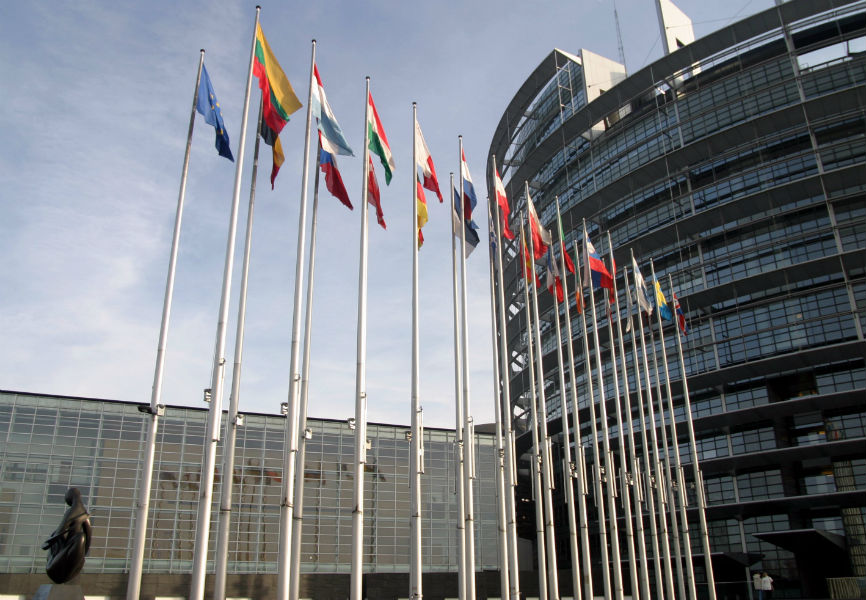The departure of Germany's powerful finance minister, Wolfgang Schäuble, was met with a huge sigh of relief across Southern Europe. This was most apparent in Athens, where Schäuble is the face of austerity ordinary Greeks have endured over the last 10 years.
Investors are also cheering Schäuble's exit. (He'll now preside over Germany's Bundestag.) They hope that whoever replaces him will be more willing to spend the country's large surplus, to the benefit of all eurozone members. Yet if anything, Schäuble's departure introduces substantial risks.
Despite his reputation, Schäuble is staunchly pro-European. The Liberal Free Democrats (FDP) — now most likely to claim the finance ministry given the recent election result — support more pan-European security and defense cooperation. But under its new leader, Christian Lindner, the party has veered sharply to the right on issues related to the eurozone, performing well with parts of the electorate as a result.
The FDP's stance was not just a campaign tactic; any junior party in a coalition will have to be mindful of demonstrating to its voters that it is respecting its commitments. Following a long period in the political wilderness, this will be an important concern for the liberals' leadership.
At 75, Schäuble is also old. Another stint in the finance ministry would probably have been his last term in government. He would therefore have been less beholden to domestic interests, and more likely to think about the legacy he would leave behind.
This would have made him more willing, alongside Chancellor Angela Merkel, to advance French President Emmanuel Macron's reforms. For example, a small eurozone budget that helps countries manage economic downturns could have been possible — albeit difficult to achieve — with Merkel and Schäuble at the helm. Now it will be impossible. Policymakers in Brussels realize that the initiative is stillborn.
Schäuble knew how to manage his troops and keep them in line, even as his government supported three bailouts for Greece and one each for Spain, Ireland and Cyprus. He was also able to keep an even keel when European Central Bank President Mario Draghi turned his institution into a fiscal backstop with his commitment “to do whatever it takes” to keep the eurozone intact in 2012. This went well beyond what most Germans believe the bank's mandate should be.
All of the plausible candidates to replace Schäuble are less well-known and less well-established. They will therefore be more beholden to the views of the German bureaucracy — as all new ministers are — which is even more conservative and hard-line than Schäuble was.
With more political parties now represented in parliament, including the far-right Alternative for Germany (AfD), Germany's incoming Bundestag will also be more fragmented and more activist. This too will constrain a novice finance minister.
As the new finance minister will probably hail from a different political party to Merkel's, the coordination and effective “tag-teaming” that has been the hallmark of the Schäuble and Merkel era — one that allowed many European compromises above to be brokered — will now also be harder to achieve.
Many prominent voices are arguing that the German government that will now emerge — and the individuals who will run it — won't change much, if at all. Germany's deep-seated “ordoliberalism” and elite and public opposition to permanent transfers from Northern to Southern Europe are far more important.
This is only partly true. Individuals matter. At a moment in which the eurozone is flirting with serious reform, a more conservative, more constrained and less experienced German finance minister is the last thing Europe needs.
Schäuble's departure should be mourned, not celebrated.
This piece originally appeared on POLITICO.

